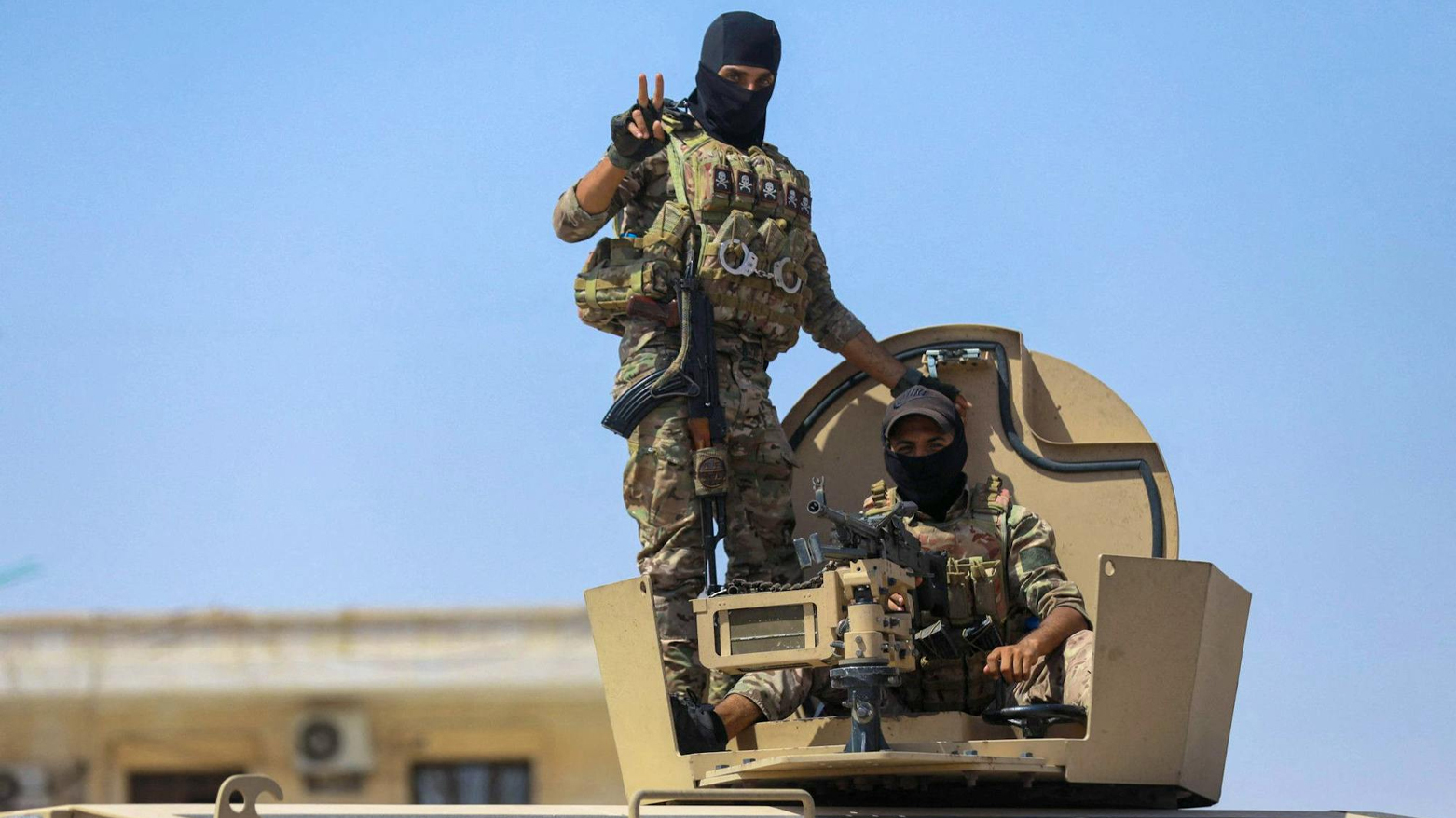SDF Repels Damascus-Backed Attack in Deir Ezzor Amid Volatile Tensions
SDF repels an attack by Damascus-affiliated groups in Deir Ezzor, holding the Syrian government responsible amid escalating military, political, and diplomatic tensions over the country's future.

ERBIL (Kurdistan24) — The Syrian Democratic Forces (SDF) announced on Monday that its fighters had repelled an attack by “Damascus government-affiliated armed groups” in the Deir Ezzor countryside, holding the Syrian government directly responsible for what it described as a “desperate attempt to sow chaos and destabilize the region.”
The incident marks a serious escalation in a period of heightened military friction and complex diplomatic maneuvers between the Autonomous Administration of North and East Syria (AANES) and the central government in Damascus.
In a statement released by its Media Center, the SDF detailed that armed groups launched an assault on a military post of the al-Kasra Military Council in the town of al-Junaynah, located in the western countryside of Deir Ezzor. The attackers reportedly used BKC machine guns and a drone. The SDF stated its fighters “courageously repelled the attack and responded to the sources of fire, inflicting confirmed casualties on the attackers.”
According to the statement, five SDF fighters were wounded in the ensuing clashes. The SDF framed the assault as coinciding with a recent escalation in ISIS attacks and reaffirmed that such “treacherous attacks will not deter us from fulfilling our duty.” The force concluded with a direct call for the Damascus government to “immediately rein in its members and cease these aggressions immediately.”
The attack on Monday did not occur in a vacuum, but rather follows weeks of rising military tensions.
Earlier this month, Deir Ezzor witnessed a sharp escalation when armed assailants attacked SDF members, leading to clashes that left one dead and six abducted. That assault, according to the Syrian Observatory for Human Rights (SOHR), coincided with mortar shelling from government-controlled areas on the western bank of the Euphrates River.
These events have unfolded amid reports from SOHR of heightened military activity and the deployment of reinforcements by both Damascus-backed factions and the SDF along contact lines stretching from eastern Aleppo to eastern Raqqa. Adding to the gravity, The National reported that Damascus had assembled an estimated 50,000 troops near Palmyra with orders to advance on Raqqa and Deir Ezzor unless the SDF relinquishes control.
This military friction is mirrored by a profound political schism over the future structure of the Syrian state.
Tensions spiked following a “Unity of Components” conference in Hasakah on August 8, where representatives from Kurdish, Arab, Syriac Assyrian, Alawite, and Druze communities called for a decentralized, federal-style state.
The Syrian government reacted swiftly, condemning the event as an attempt to “fragment the country” and announcing its withdrawal from planned talks in Paris.
President Ahmed al-Sharaa has also unequivocally rejected any possibility of partition, labeling such scenarios as "impossible." This ideological clash has been further underscored by the ongoing dispute over Syria’s transitional parliament, which the AANES has condemned as undemocratic, and which Damascus has postponed in Kurdish-held provinces, stating the process could only proceed in “territories controlled by the state.”
However, despite the public acrimony and military posturing, high-level diplomatic channels remain active.
According to AFP, a senior official in the Kurdish administration, Elham Ahmad, met with Syrian Foreign Minister Asaad al-Shaibani in Damascus on Monday evening. A Kurdish official told the news agency the meeting occurred “upon the request of the Damascus government,” just days after it boycotted the Paris talks.
The discussions reportedly sought to affirm “the continuation of the negotiating process” and both sides agreed “there was no place for a military option.” According to the Kurdish official, talks focused on finding an “appropriate formula for decentralisation.”
This meeting highlights the deep complexities of a relationship where public condemnations coexist with dialogue aimed at implementing a March 10 deal between SDF commander Mazloum Abdi and President al-Sharaa on integrating the AANES’s institutions into the state, a process that has largely stalled.
This complex picture is further contextualized by high-level regional calls for de-escalation.
During a recent meeting in Pirmam with Syrian political figure Mahmoud al-Muslat, President Masoud Barzani emphasized the need for dialogue to resolve Syria’s issues. According to a statement from Barzani Headquarters, the President firmly reiterated that "disagreements between political parties must not lead to war between Kurds and Arabs."
This appeal for peaceful resolution underscores the significant risks of the current standoff, where military clashes like the one in al-Junaynah serve as stark reminders of the fragility on the ground, even as diplomatic and political efforts continue to navigate a path away from a wider conflict.